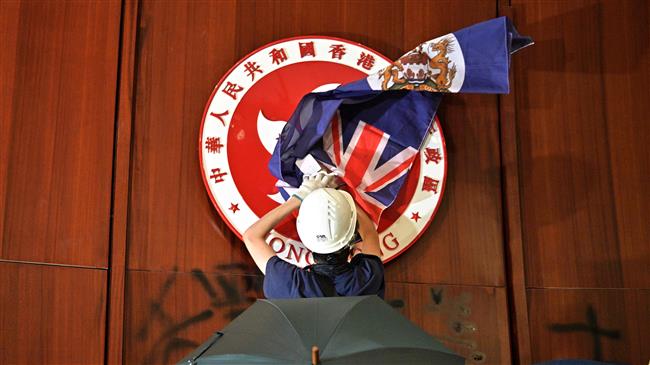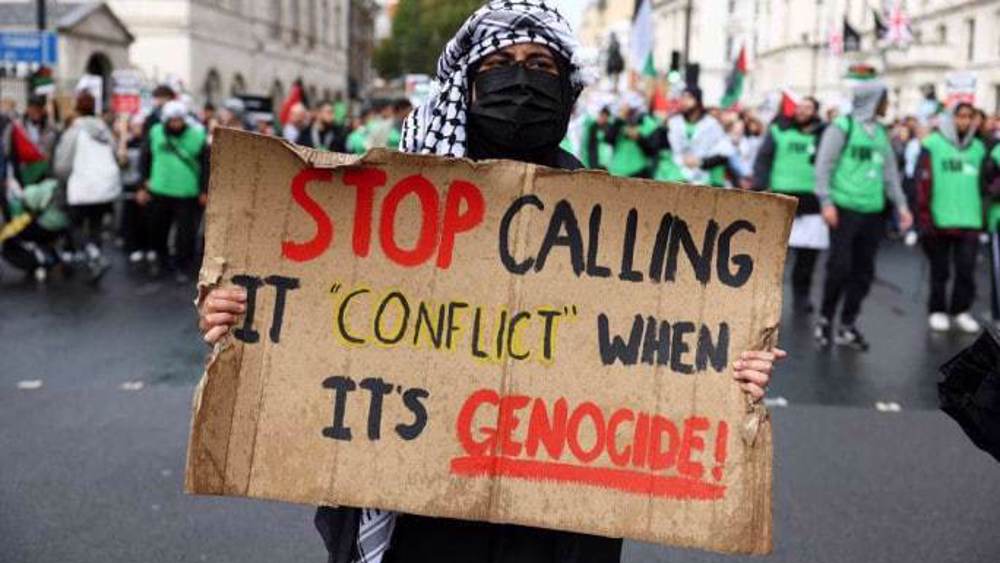Hong Kong Protests: Hunt on the “wrong side” of the issue
Hong Kong Protests: Hunt on the “wrong side” of the issue
The war of words between China and Britain over Hong Kong has escalated as Beijing's ambassador to the United Kingdom urged Britain to stay out of Chinese affairs. But apparently the UK, and above all Jeremy Hunt, doesn’t seem willing to allow the Chinese to manage their own affairs.
It is not the first time Britain interferes in Hong Kong. In September 2018, releasing its 43rd six-monthly report on the region, the British government warned of “growing concerns” with respect to freedom of speech in Hong Kong, particularly in relation to discussions of the controversial notion of Hong Kong gaining independence.
Now, after almost 11 months, people are on the streets, the old British colonial flag has been raised in the Legislative Council building on the anniversary of Hong Kong’s 1997 return to Chinese rule, and China state media blames ‘Western ideologues’ for the Hong Kong protests: “Ideologues in Western governments never cease in their efforts to engineer unrest against governments that are not to their liking, even though their actions have caused misery and chaos in country after country in Latin America, Africa, the Middle East and Asia”.

For the past month, protesters have been demanding the withdrawal of a bill that would allow extradition to the Chinese mainland and the UK foreign secretary, Jeremy Hunt, has played a controversial role, taking the global lead in condemning China.
This is while Victor Gao, vice-president of the Centre for China and Globalisation in Beijing, called the occupation of parliament an "anarchism" adding "this is to be protested and to be condemned by any government leader with any level of conscience".
Hunt called on Beijing not to use the protests as a "pretext for repressions" and warned of "serious consequences", but again nobody counted him in. "He seems to be fantasizing in the faded glory of British colonialism and in the bad habit of gesticulating while looking down on other countries' affairs," Chinese foreign ministry spokesman, Geng Shuang, said during a regular ministerial news briefing in Beijing.

Liu Xiaoming, China's ambassador to London, believes that it is "hypocritical" of UK politicians to criticise the lack of democracy and civil rights in Hong Kong when, under British rule, there had been no elections nor right to protest.
He added that relations between China and the UK had been "damaged" by comments Mr. Hunt and others backing the demonstrators' actions had made.
By his "irresponsible remarks", Hunt not only aggravated the crisis in China, but also caused British trade officials’ some moments of fear over their £500 million deal with China.
Hong Kong was a British colony for more than 150 years before officially returning to Chinese sovereignty in 1997. It is currently administered under a “One Country, Two Systems” arrangement, which allows the territory some autonomy.
The sudden collapse in Sino-British relations represents a personal test for Mr. Hunt as he makes his bid for the premiership. How far can he go?
Hezbollah condemns Israel's ‘treacherous assassination’ of Al-Housh Mosque imam
Israeli woman shocked after being listed as ‘dead’ in recent Iran riots
Israel clearing northern Gaza land for settlements: Report
Gaza deadliest place for journalists and aid workers: UNRWA chief
Israel claims body of final captive recovered from Gaza
VIDEO | Armed gangs in Gaza at center of brewing power struggle over civil administration
3,500 Iranian cultural, media figures support Leader amid Trump’s threats
Hezbollah chief: New US-Israeli war on Iran will set entire region ablaze










 This makes it easy to access the Press TV website
This makes it easy to access the Press TV website